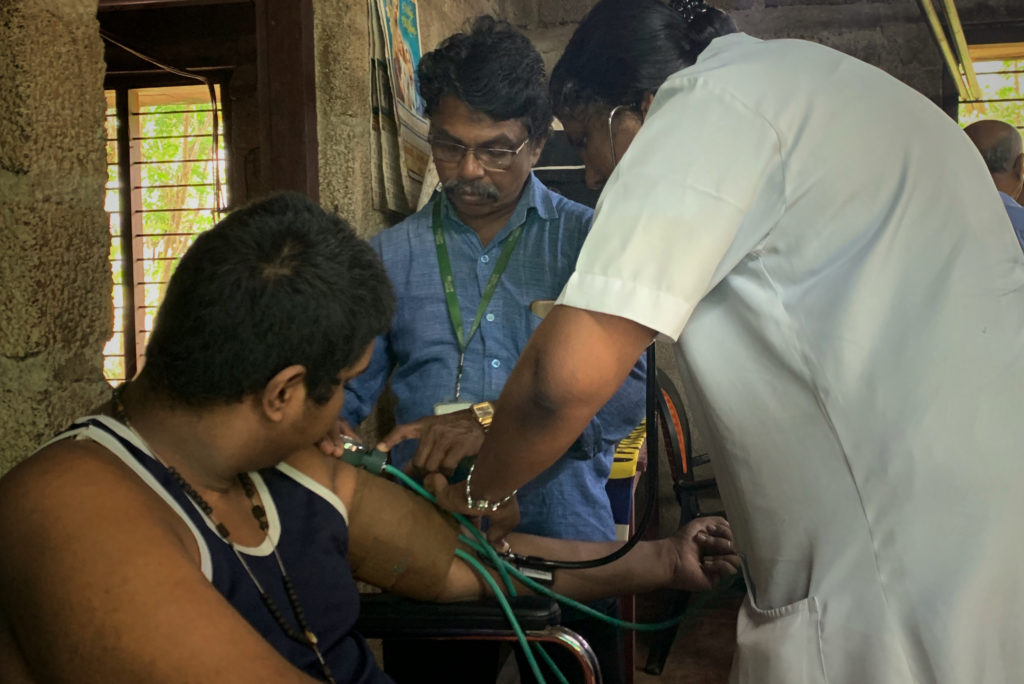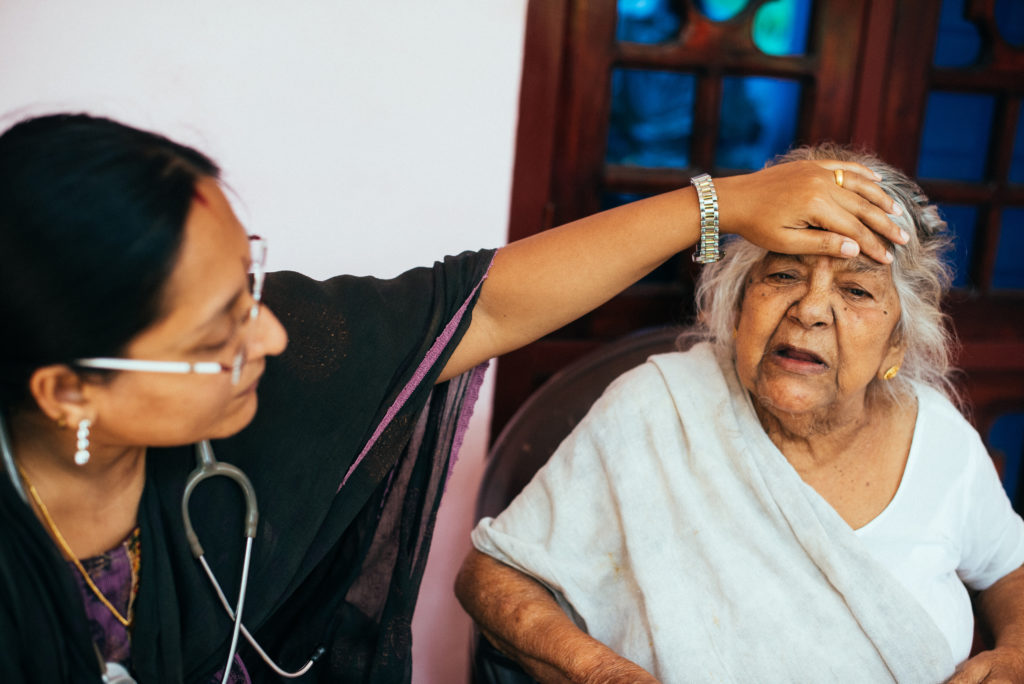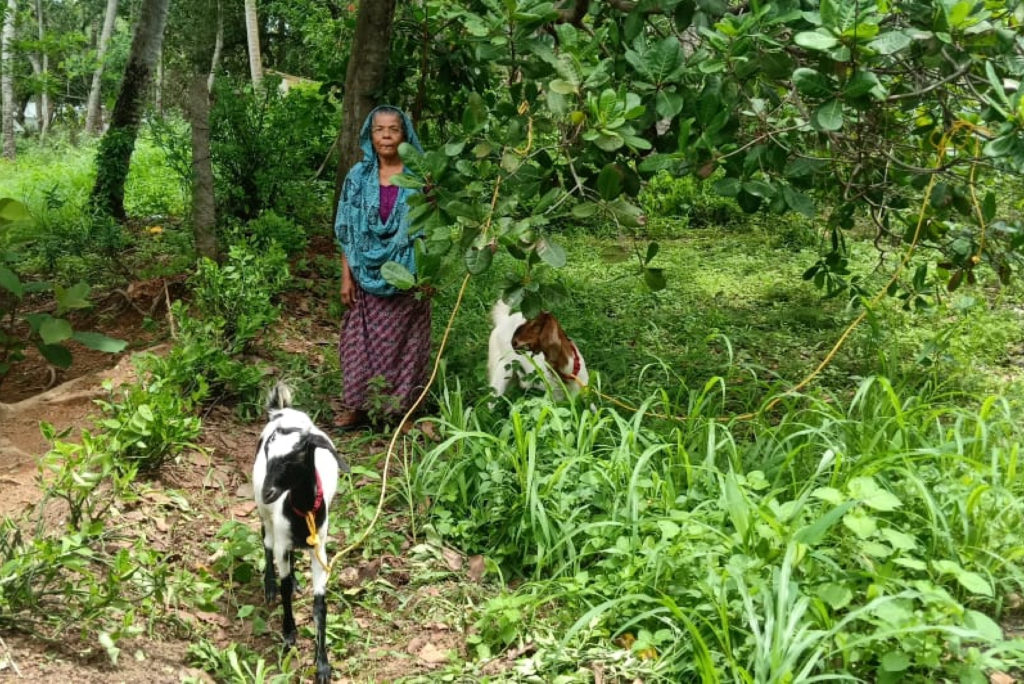BLOG
What surprised you? What inspired you? What touched your heart?
By Dr.Theodore Nguyen
I am so fortunate that while in India, I had the opportunity to work with an astounding group of people who provide care throughout the community. Pallium India is an organization that embraces the palliative care practice of managing total pain and suffering: mind, body, and soul. The teamwork between social workers, nurses, physicians, pharmacists, and volunteers all tend to each patient’s physical and psychosocial manifestations of pain. Outreach is provided to the ill, the poor, and the otherwise forgotten.
Pallium provides medications, supplies, and education to patients and their caregivers, but most importantly, they provide the time and attention needed. In some cases, the effects of medications and medical interventions may plateau – a point where limited additional benefit is seen. In these scenarios, we often forget about the strong impact and comfort that can be provided by simple human touch and communication. During several patient encounters, I witnessed patients, distressed in bed, soothed just by the physician sitting on their bed, holding their hand, and calmly talking with them. In no way am I discrediting the impact of medical care, but instead, reflecting on an often overlooked aspect of multimodal care – tending to the psychosocial management.
While patients’ symptoms are being managed, the team also remembers to address the well-being of the respective caregivers or family members. The family and caregivers are equally at risk to be burdened by the decline and suffering of the patient. Having had different conversations about grief and bereavement from my residency, I was aware of the toll involved with witnessing a loved one die and the Pallium team takes this to heart. What I failed to anticipate was how the addition of culture can highly complicate an already difficult situation.
I recall during one home visit, our team was scheduled to meet a new patient with lung cancer who was exhibiting severe symptoms. The hour long journey to the patient’s home involving driving through narrow dirt pathways, past countless potholes, and carefully navigating through winding curves on unmarked roads. When we arrived, there were only 3 houses adjacent to each other. We were invited into the home to see the patient. Non-responsive in bed, the patient was tachypneic and severely cachectic – with visible radial pulse and temporal wasting. It was clear that he was actively dying. His wife provided his hospital records, confirming what we had anticipated. The team took the time to explain to his wife about the prognosis. Afterward, the team then arranged to meet with each and every relative living nearby to explain the situation in detail. It was shared with me that it is common in this culture that when a spouse rapidly declines, the wife is often blamed for “not taking care of her husband and letting him get worse.” The palliative care team purposefully met with all of the surrounding relatives to provide information about the patient’s decline and disease process in order to protect the wife from this social scrutiny.
I was amazed to witness the detailed management and palliative care provided to patients and their families to not only treat pain, but also prevent suffering for all involved. Overall, my experience at Pallium India was a humbling opportunity to reflect about care beyond the clinical aspects of palliative care or, as Pallium India describes it, true total care.
On a lighter note, during our time rounding between the different relatives, one family member gave us a tour of his crafts. The images are handcrafted beehives… or rather, “bee mansions” that he creates on his spare time to colonize bees and harvest honey.
Dr. Theodore Nguyen, a PGY-2 resident pharmacist specializing in palliative care at the University of Iowa, writes about his visit to Pallium India in January 2020. Dr Nguyen obtained experience during his residency working throughout various departments, including pain management, supportive care in oncology, hospice, and palliative care. He previously worked with the inpatient palliative care teams at the University of California, San Diego and MemorialCare Long Beach. He is an avid foodie who loves to try and recreate various dishes he experiences during his travels.
Our Blogs
By Guest Author Danielle Pittman
“Our Central Line”, Winter 2011 Volume 19, Issue 1
Pallium: A Poem
By Dr.Tom Mcnalley
By Dr.Ann Broderick




